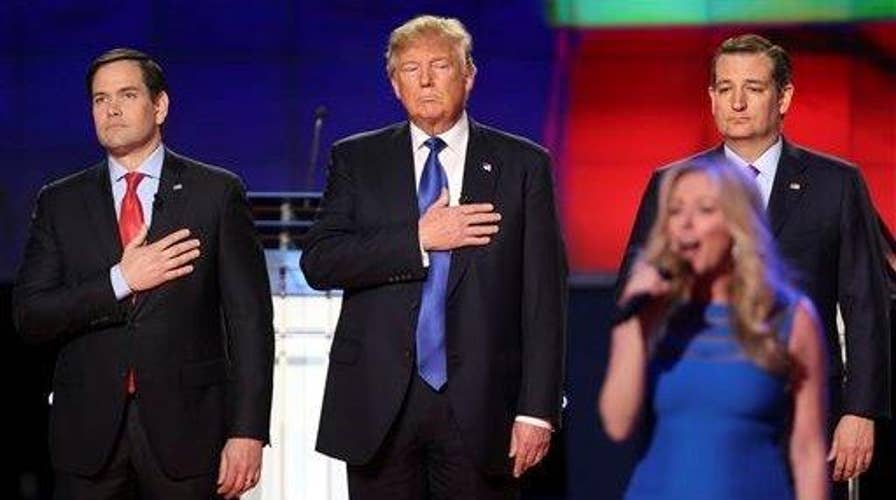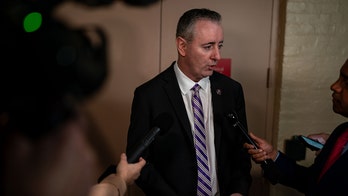While Democrats will have more than 700 "superdelegate," nominators unbound by primary or caucus results when their summer convention starts, there will be far fewer free agents at the Republican gathering.
A combination of state and national party rules decide how many delegates vote and how their tallies are allocated at the conventions. Most delegates are “won” by candidates duing caucuses and primaries, with some states giving all of theirs to the party's winner, some apportioning them and still others applying a combination of the two systems.
The Democrats have a total of 4,762 delegates this cycle, including 712 superdelegates who can pledge their vote to whomever they want and can change their minds if they wish. Superdelegates typically include Democratic Party officials, governors and other lawmakers. Frontrunner Hillary Clinton says she has already locked down 457 superdelegates, which combined with her regular delegates, gives her 1,058, compared to 451 for her opponent Bernie Sanders.
The Republican party has about half the number of total delegates -- 2,472 -- and a relative handful of truly unpledged or “unbound” delegates -- 298 -- going into the Republican Convention. In addition, there are a small number of delegates who were won by Gov. Jeb Bush and Ben Carson in Nevada, New Hampshire and Virginia before they dropped out of the race. Those delegates are free to pledge to other candidates now.
But not all states have the same rules. Iowa, for example, does not release its allocated delegates even when a candidate leaves the race.
In order to win the nomination outright, both parties' candidates must hit a magic number of delegates -- for the GOP it's 1,237; for Democrats, it's 2,382. If no one hits that mark, the nomination is "contested" going into the convention. If after a first round of votes there is no clear winner -- and this is where the unbounded, or "superdelegates" play a big role -- the convenion becomes "brokered," leading to politcal horsetrading and addtional rounds of voting to come to a consensus.
Who are the truly unbound?
Aside from the released delegates, all of the delegates representing the Republican National Committee -- there are three from each state, the District of Columbia and the territories -- are unpledged. In addition, each delegate from North Dakota, Colorado and Wyoming can vote for whomever they want, despite the results of their caucus or primary contests. The only difference there is, while delegates in those states can choose their own candidates, they are bound to them through the nomination process.
The rules as they stand pretty much guarantee the RNC won’t face the same kind of backlash the DNC has received over its superdelegates. The Democrats instituted the superdelegate formula as a way to give party leaders and officials more influence after Jimmy Carter lost his his re-election to Ronald Reagan in 1980. That followed another big loss to the Republicans in 1972.
The grassroots, the conventional wisdom held at the time, was given to picking unelectable candidates, so this was a "backstop" to prevent that from happening again.
But as insurgent candidate Sanders and his supporters watch Clinton scoop up all the superdelegates not bound to the results of the caucuses or primaries, the DNC has been forced to explain the rationale all over again. For now, Republicans have no such quandary.
“Whether it’s fair or democratic is in the eye of the beholder,” said Josh Putnam, who runs the popular elections blog, FrontloadingHQ. “At the end of the say the parties have the ability to determine the rules that govern their processes.”
Kelley Vlahos contributed to this report





